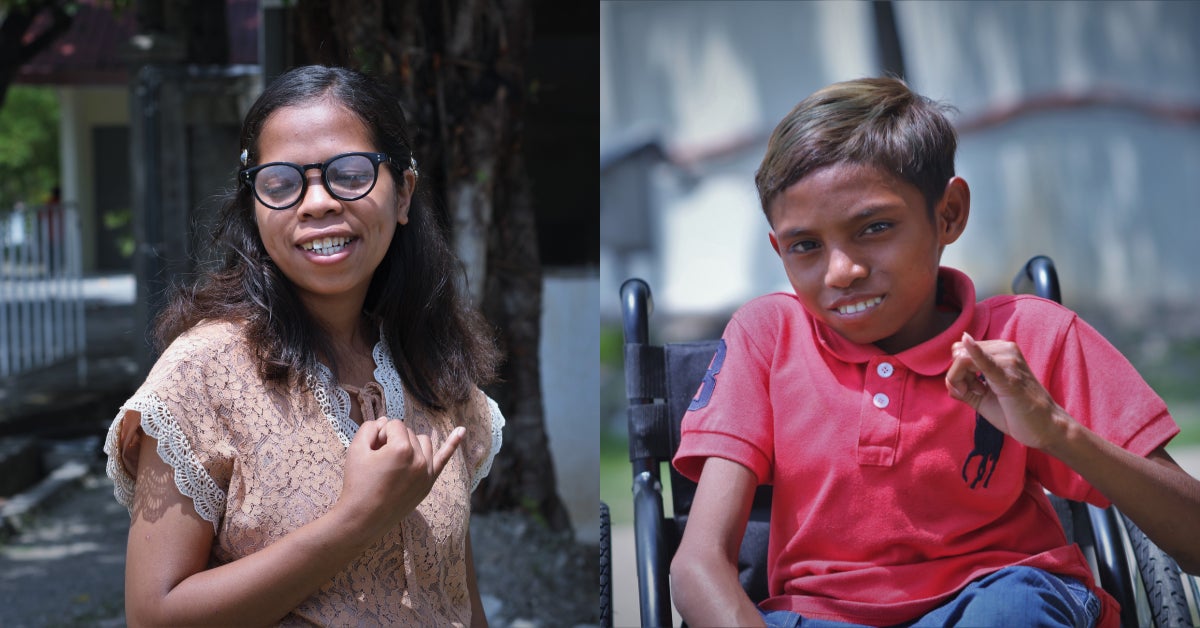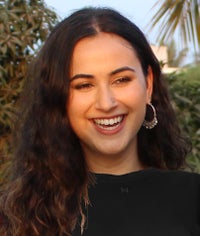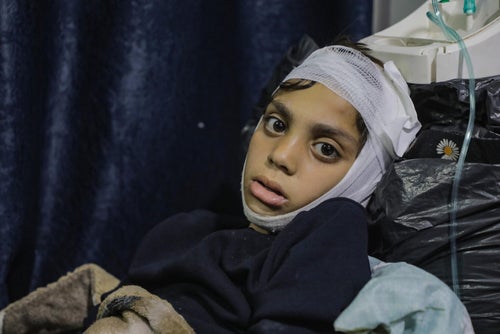This year, for International Day of Persons with Disabilities (IDPWD), we knew that we had to elevate children and young people’s voices connected with some of our long-term, inclusive development Priority Programs in the Asia-Pacific region.
That is why we connected two incredible young disability advocates from Timor-Leste with UNICEF Australia Ambassador and renowned writer Tara Moss, to discuss what makes an accessible, equitable and inclusive world for every child.
Keep reading below to hear how the conversation went...
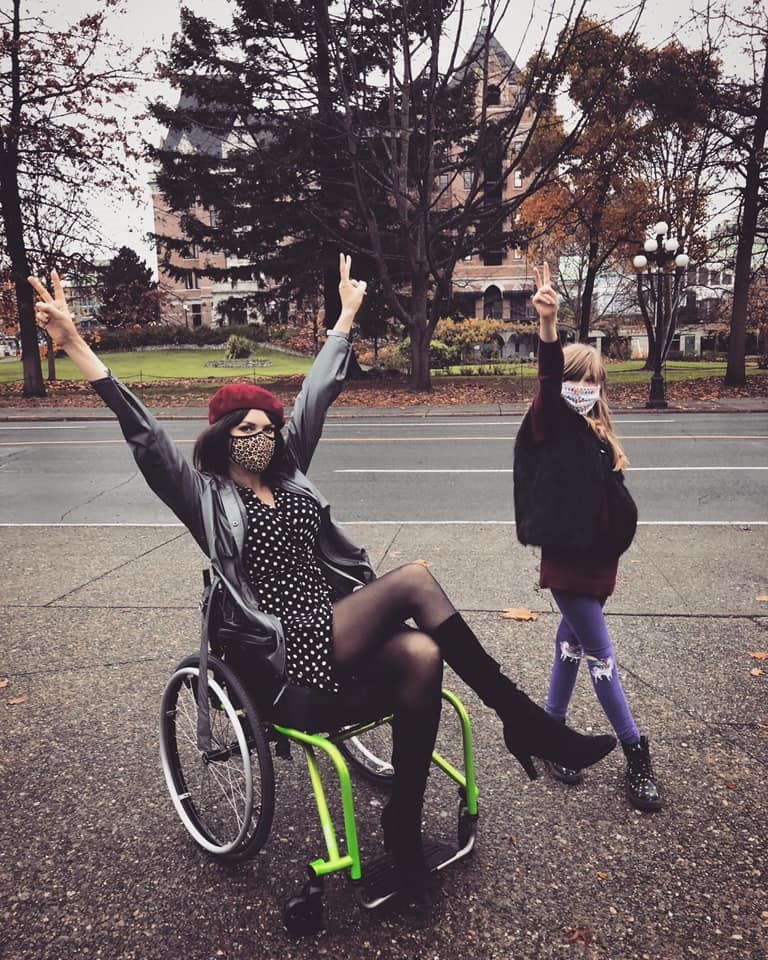
About Tara Moss
Tara Moss (pictured left with her daughter) is one of Australia’s most revered crime fiction writers, a journalist, former model, and a UNICEF Australia Ambassador since 2007. Tara currently resides between Canada and Australia.
Tara is a passionate and outspoken advocate for human rights and the rights of women, children, and people with disabilities. Tara is also an ambulatory wheelchair user with CRPS (Complex Regional Pain Syndrome), she brings advocacy and visibility to issues of disability and chronic pain, and the need to normalize mobility aids.
Tara: Hi Leo and Lucia! I’m calling from Canada right now, it’s so great that we can connect online.
I have been an ambassador with UNICEF Australia since 2007, and I am a person with disabilities myself, so I am very honoured to get to talk with you.
Leo and Lucia: Hi Mana* Tara, we are dialling from Dili in Timor-Leste! We are very happy to meet you too.
Tara: So, can you tell me about yourselves, what are your stories?
*’Mana’ is a term used as sign of respect when addressing female-identifying people in Timor-Leste. It means ‘sister’.
Leo’s Story
Leo: I have not been able to walk since I was a young child and was part of a serious accident.
Growing up I lived in a rural farming community, where few people knew about disabilities. My parents thought it was better for me to stay at home instead of going to school because of my disability.
But I wanted to go to school, so my uncle convinced my parents I should learn in school, and they agreed! I attended school, but it was difficult as I live on a mountain and I have to walk on my hands.
After some time of difficulty, my parents said I should stay home again. But my uncle did not give up on me. After my family agreed, he brought me to live with him in a local town where the location is much easier for me to access school. Now I am in Grade 4. I also met a local disability organisation and they arranged a wheelchair for me.
But the road from my uncle's house to school is rough, so my wheelchair tyres have become flat. Now I cannot use my wheelchair to go to school. My uncle is not always available to drive me, so my studies are often interrupted.
But I believe my ability is bigger than my disability. My dream is to complete my studies. I want to play guitar, I want to work in an office, I want to write stories of disabilities for others in my community to understand.
Tara: Thank you Leo for sharing. I am also glad to hear from UNICEF that you are getting support from the government to address your recent accessibility issues so that you can complete your education.
Your story makes me think about how important it is that people with disabilities have options, independence that gives them access. So, I admire your resilience and the resilience of people with disabilities around the world.
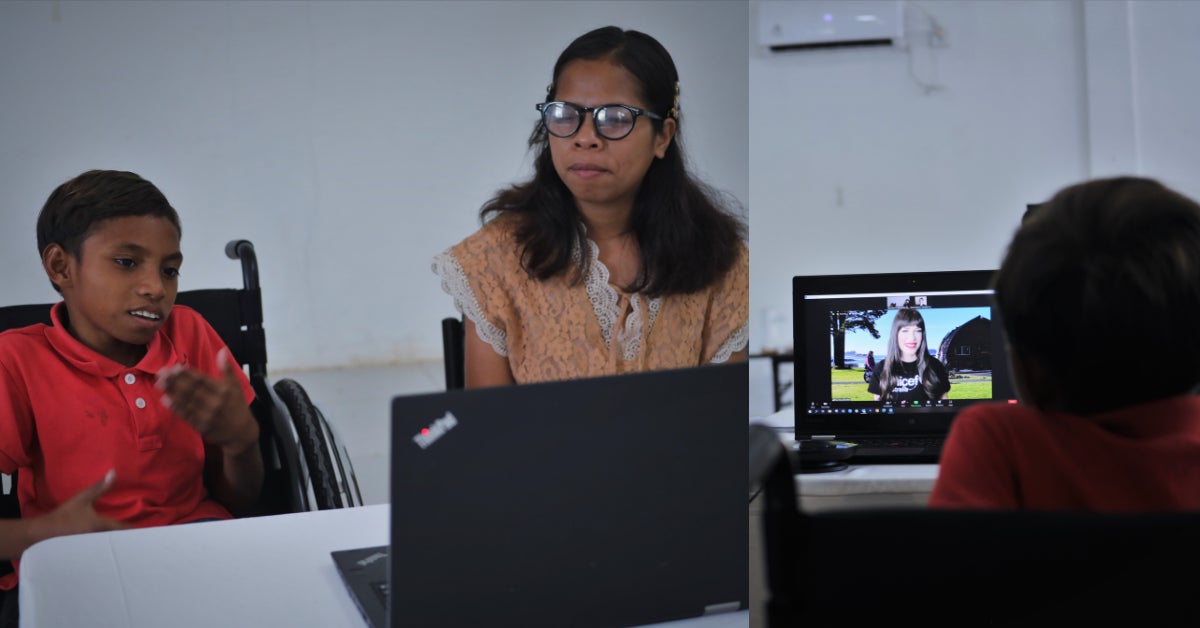
Lucia’s Story
Tara: I was wondering, Lucia, if I could ask you a little bit about some experiences you have had in terms of challenges as a young person with low vision and disability?
Lucia: I developed my disability when I was two years old. I had a high fever and red eyes. Even though I was taken to the hospital and received treatment, when I opened my eyes, it was covered in a white liquid, and I couldn’t see. My eyes never fully recovered, so now I have low vision.
When I was a child my parents sent me to a local public school, but it was very difficult for me to read and write and see the blackboard. Because the teachers did not deliver the lessons in braille, I was often unable to participate in class properly. But my friends who do not have a disability wrote my notes and supported me to learn, and now I have graduated from primary school.
After, I attended a program for people with visual impairment, run by a local disability organisation in the capital city of Dili. At this school I learnt a lot more things than I would have before. The first thing I learnt was braille and now I am mastering it. I also have learnt cultural dance, poems, theatre, and music. I also teach new students with visual impairments braille as well. I want to keep doing this as my dream for the future is to be a teacher of braille to those with visual impairments.
Tara: What a difference it would make for other people with low vision to have you, Lucia, as a teacher, so you can create a more accessible classroom than the one you had. So cool!
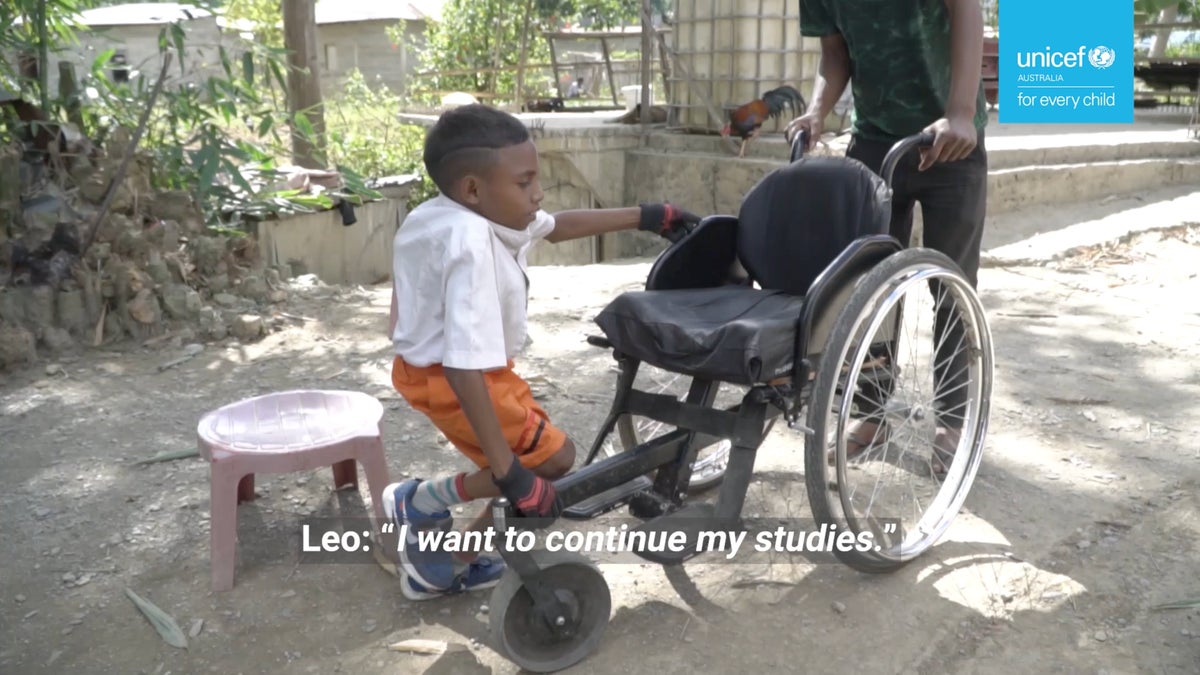
Want to hear more from this incredible conversation?
Leo and Lucia’s thoughts on IDPWD
Tara: So, the theme for 2022 International Day of Persons with Disabilities (IDPWD) is “transformative solutions for inclusive development, the role of innovation and fueling an accessible and equitable world.” What does this mean to you?
Leo: I hope that we can find ways to improve the lives of people living with a disability! I really want to see my peers from school support people like me living with a disability. My peers make a lot of jokes about my wheelchair, my physical appearance and sometimes they sit away from me. I hope that in the future we can work together as a group, be a team. I hope my peers can have more understanding of people with disabilities, and that we can study together, support and help each other.
Lucia: It is important that IDPWD is celebrated by people with or without disabilities. People without a disability should respect the dignity of people with disabilities. We are all equal, no matter our differences.
"IDPWD is a movement that helps enhance the lives of people living with a disability. In the future I hope that we can find ways to increase accessibility and minimise the stigma, discrimination and violence towards people living with a disability."
Tara: We really do have to do better with equity and accessibility everywhere! We want to live in a world where people with disabilities have the same level of participation and respect available to everybody else.
Thank you for sharing your stories, Lucia, and Leo. It's been such a pleasure to talk with you!
Leo and Lucia: Thank you Mana Tara! We hope to speak to you again soon!
Leo and Lucia were contacted by UNICEF Timor-Leste teams delivering adolescent civic participation programs supported by UNICEF Australia and the Australian government through the Australian NGO Cooperation Program (ANCP).
This program works to encourage civic participation of adolescents and youth in Timor-Leste. UNICEF Timor-Leste are holding consultations and engaging young people like Leo and Lucia with disabilities to develop a practical guide for the Timorese government and other organisations to ensure that all events, consultations, workshops, and other scenarios are welcoming and accessible for children and young people with disabilities.
Related articles
Stay up-to-date on UNICEF's work in Australia and around the world



